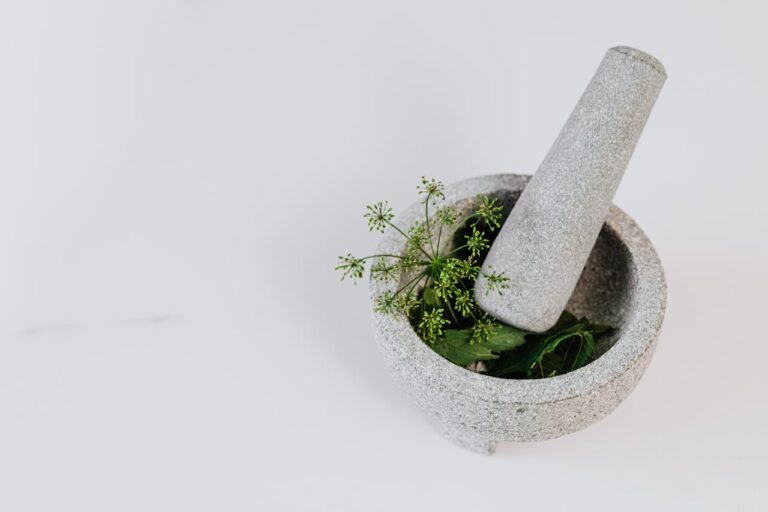Introduction
Herbal remedies have been used for centuries to support health and well-being. From soothing teas to potent tinctures, nature provides a wealth of healing potential. However, many people try herbal remedies only to be disappointed with the results. They hear about the benefits of turmeric for inflammation or ashwagandha for stress, yet after weeks of use, they see little to no improvement. Why does this happen? Are herbal remedies ineffective, or is there a missing piece to the puzzle?
The truth is, most herbal remedies fail not because they don’t work, but because they aren’t used correctly. In this post, we’ll explore the common reasons herbal remedies don’t deliver results and reveal the secret to making them truly effective.
Why Herbal Remedies Seem Ineffective
Many people turn to herbal remedies with high expectations but end up frustrated. Here’s why:
1. Poor Quality Herbs
Not all herbal products are created equal. Many store-bought supplements contain low-quality or diluted ingredients, reducing their effectiveness. Some may even contain fillers or contaminants that diminish their potency.
2. Wrong Dosage
Unlike pharmaceuticals, which come with standardized doses, herbal remedies require a bit more precision. Taking too little may not yield results, while taking too much could lead to unwanted effects.
3. Inconsistent Use
Herbal remedies often work gradually, supporting the body’s natural healing processes. Many people give up too soon, expecting overnight results. Unlike synthetic drugs that provide immediate relief, herbs typically need consistent use over weeks or even months.
4. Ignoring Bioavailability
Certain herbs require specific preparation or pairing with other substances to enhance absorption. For example, curcumin, the active compound in turmeric, is poorly absorbed on its own but becomes significantly more effective when combined with black pepper (piperine).
5. Lifestyle Factors
Herbs work best when combined with a healthy lifestyle. Poor diet, lack of sleep, chronic stress, and exposure to toxins can counteract the benefits of herbal remedies. Expecting herbs to fix everything without addressing these factors is a common mistake.
Why This Matters
When herbal remedies fail, people often conclude that natural healing doesn’t work. This misconception can drive them toward synthetic medications with potential side effects, leaving them feeling disillusioned. Worse yet, they might jump from one herbal supplement to another, wasting time and money without ever experiencing the benefits they were hoping for.
If you’ve ever tried herbal remedies and been disappointed, don’t give up just yet. The secret to making them work lies in understanding how to use them effectively.
How to Make Herbal Remedies Work for You
Now that we’ve uncovered the reasons behind herbal remedy failures, let’s explore the steps to ensure you get real results.
1. Choose High-Quality Herbs
- Look for organic, third-party tested, and sustainably sourced herbs.
- Buy from reputable brands that provide transparent information about sourcing and potency.
- Freshness matters—opt for whole herbs, tinctures, or freshly ground powders rather than pre-packaged capsules with unknown origins.
2. Use the Right Dosage
- Follow dosage recommendations from herbalists or traditional medicine practices rather than relying solely on supplement labels.
- Start with a low dose and gradually increase if needed, while observing your body’s response.
- Some herbs are more effective in concentrated forms, such as tinctures or extracts, rather than capsules or teas.
3. Be Consistent
- Take herbal remedies daily, as recommended, and give them time to work.
- Keep a journal to track progress and adjustments.
- Remember that chronic conditions may require longer periods of use before noticeable improvements occur.
4. Enhance Absorption
- Pair herbs with natural enhancers. Examples:
- Turmeric with black pepper
- Fat-soluble herbs (like ashwagandha) with healthy fats
- Herbal teas steeped for the correct amount of time to extract beneficial compounds
- Consider different forms—teas, tinctures, and powders often provide better absorption than capsules.
5. Support with a Healthy Lifestyle
- Eat a nutrient-dense diet to provide the body with the building blocks it needs.
- Stay hydrated to help the body absorb herbal compounds effectively.
- Prioritize sleep and stress management, as these greatly impact the effectiveness of any remedy.
6. Work with a Professional
If you’re unsure about dosage, interactions, or the best herbs for your needs, consult a trained herbalist or naturopath. They can guide you toward the right combinations and ensure safety, especially if you’re taking medications.
Conclusion
Herbal remedies don’t have to fail—when used correctly, they can be powerful allies for health and wellness. The key lies in sourcing high-quality herbs, using the right dosage, staying consistent, enhancing absorption, and maintaining a healthy lifestyle.
If you’ve been disappointed by herbal remedies before, now is the time to give them another chance—with the right approach, you may be surprised by the results.
Disclaimer
This article is for informational purposes only and is not intended to diagnose, treat, cure, or prevent any disease. Always consult with a healthcare professional before starting any new supplement or herbal remedy, especially if you have existing health conditions or are taking medications.







